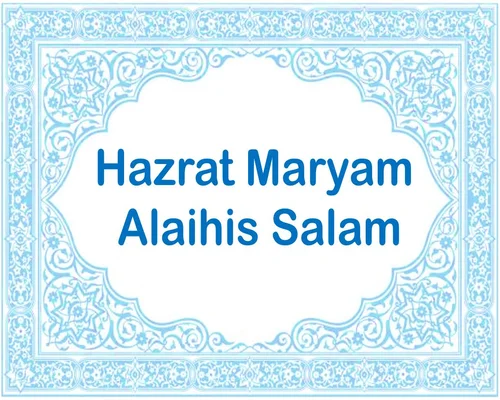
Hazrat Ayesha Radi Allahu Anhu
Hazrat Ayesha Radi Allahu Anhu
Hazrat Aisha (radiyallahu anha) was an important woman in Islam and the wife of Prophet Muhammad (peace be upon him). He was an eyewitness to important events in the early days of Islam and his contribution to hadith and Islamic knowledge is remarkable.
1. Birth and family
Hazrat Ayesha (RA) was born in Mecca in 613 or 614 AD.
His father name was Abu Bakr As-Siddiq (RA), the first Caliph of Islam and a very close companion of the Prophet (PBUH).
Mother name was Umm Ruman (RA).
2. Married life
Hazrat Ayesha (R.A.) was married to the Prophet (S.A.W.). She was the only virgin wife of the Prophet.
He started his family after the migration of Prophet Kareem (PBUH) to Madinah.
The Prophet had a special love for Hazrat Ayesha (RA), and he used to express it.
3. Titles and special status
Title: "Ummul Muminin" (Mother of the Believers).
He gained special status among the Muslim community due to the love and respect of the Prophet (PBUH) for him.
At the time of the death of the Prophet (PBUH), he was in the house of Hazrat Ayesha (RA) and breathed his last with his head on her lap.
4. Introduction to the practice of Islamic knowledge
Hazrat Ayesha (RA) was very wise and wise.
He narrated many incidents and hadiths of the life of the Prophet (PBUH).
About 2,200 hadiths were narrated through him, which played an important role in Islamic law and education.
He used to issue fatwas on various aspects of Islam and many companions learned from him.
5. Research and Education
Hazrat Ayesha (RA) was not only knowledgeable about religious matters but also about literature, medicine and history.
Much important information about the biography of the Prophet (PBUH) and the early history of Islam has been preserved through him.
6. Jamal war
In 656 AD (36 Hijri), the Battle of Jamal (Battle of the Ostrich) took place under the leadership of Hazrat Aisha (RA). It was a political conflict against Hazrat Ali (RA) and his followers.
Later, Hazrat Ayesha (RA) repented and spent the rest of her life in Madinah in Islamic education and worship.
7. Death
Hazrat Ayesha (RA) died in Medina in 678 AD (58 Hijri).
He was buried in Jannatul Baki Cemetery.
8. Notable features
Religious leadership: She was a prominent role model for Muslim women.
Courage and Intelligence: He was brave, intelligent and shrewd.
Strong personality: He took a stand for truth and justice.
Conclusion
Hazrat Ayesha (RA) is a unique woman in the history of Islam. His knowledge, wisdom and contribution to Islamic scriptures are still remembered in Muslim society. From her life, women can find inspiration for enlightenment, courage and self-respect.













-Full-Story-thistimeworld.webp)
-Full-Story-thistimeworld.webp)
-Full-Story-thistimeworld.webp)
-Full-Story-thistimeworld.webp)
-Full-Story-english-thistimeworld.webp)

-Story-thistimeworld.webp)
-Full-Story-thisitmeworld.webp)
.webp)
-english.webp)



